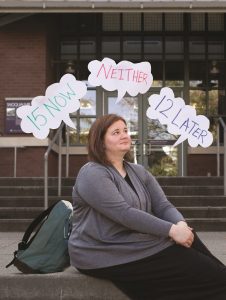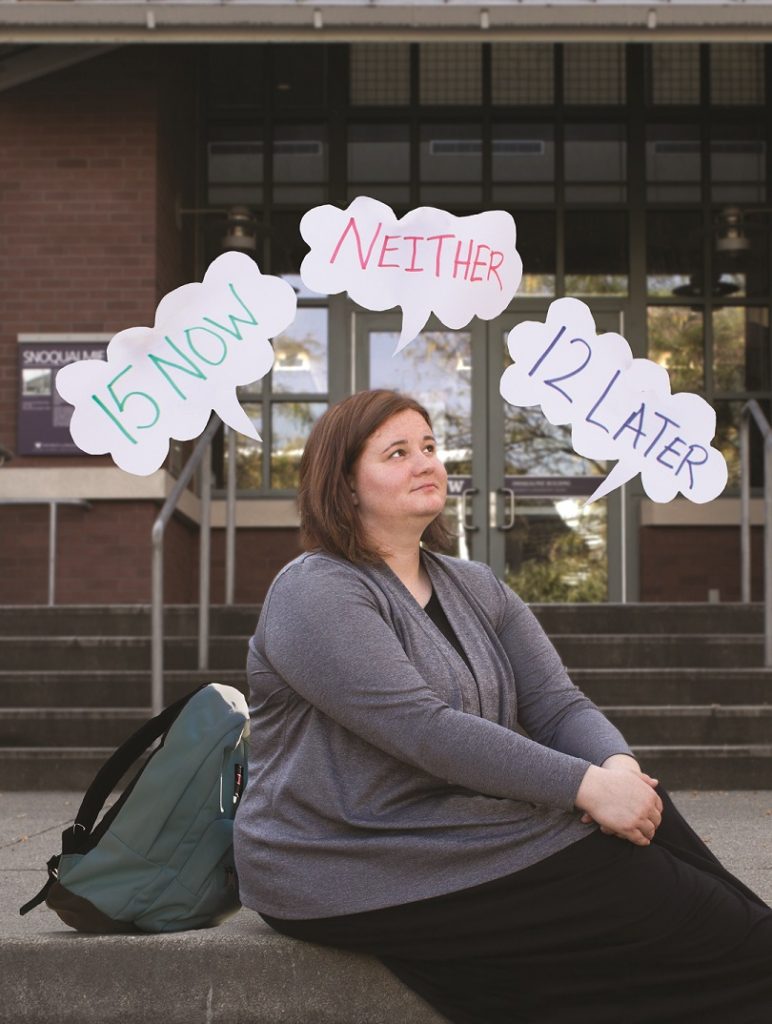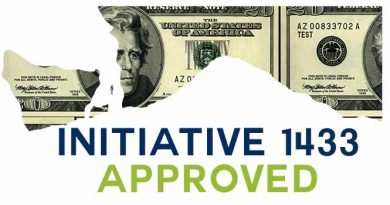$12-$15 Wage Raise Coming to UWT
An $11 student wage raise became effective at UWT on Wednesday, April 1st. At the time, UW Seattle was pushing for a $15 minimum wage raise. Keeping local businesses and the student body’s best interest in mind, UWT administration and Chancellor Mark Pagano decided to raise the university’s wages, but not as high as $15. They determined that student wages would be raised to $11/hour. There are approximately 300 student employees on campus. When the $11 wage raise was executed by the Services and Activities Fee Committee (SAFC), 10 student positions were eliminated as a result of a “cost-saving merger,” ASUWT Director of Finance, Bronwyn Clarke said. “Of all student employees, about 60% are at the $11 mark, with the remainder being paid higher wages,” Clarke said. Various student employees in different departments were already above the $11 pay rate, which caused the university to undergo a cost compression. Student workers that were at the $11 pay rate prior to April were given a raised based on their level of responsibility at their job. All departments participated in the adjustments in pay except ASUWT, who decided to keep their employees at the $11 pay rate. Recently the University has been focusing on the Tacoma City Council’s Initiative No. 1, which would enact a $15/hour minimum wage raise (also known as 15 Now), and Initiative No. 1B, which would enact a $12/hour minimum wage raise (also known as 12 later) that would be set into place by 2018. Initiative No. 1 and No. 1B will be on ballots for Tacoma voters in Pierce County, Tuesday, November 3rd. Mayor Marilyn Strickland requested a Task Force be created in support of Tacoma citizens best interest. Resolution 39187, establishing the Minimum Wage Task Force comprising of 13 members, which was later altered to 15 members in Resolution 39194. The Task Force’s purpose was to review the minimum wage alternatives in Tacoma, and submit recommendations to the City Council by Tuesday, June 30th. One concern the Task Force discussed was the cost-of-living increase that will affect the Tacoma area. The resolution stated that since Seattle’s economy is stronger, the cost of living will be higher. Seattle’s household income is 30% higher than Tacoma’s. Due to the gap in the cost-of-living between the two cities, Tacoma City Council opted to increase the minimum wage in a span of seven years. The Minimum Wage Task Force created two proposals: Proposal A stated that the $15/hour minimum wage raise would be phased in and be complete by 2024. For businesses comprised of 150 employees or more, the $15/hour minimum wage raise would be complete by 2020. Proposal B stated that the $12/ hour minimum wage raise would apply to everyone working in Tacoma and would be complete by 2019. Council members decided to modify the Task Force’s $12 proposal and include the alternative on November ballots. Initiative No. 1B is a $12 incremental wage raise that will be complete by 2018. This will set minimum wages to $10.35 as of February 2016, $11.15 as of January 2017, and $12 as of January 2018. “We as city council thought that $12 is a good increase because it get phased in over two years,” Mayor Strickland said. Pierce County voters will be asked to respond to two questions on the ballot. The first question will ask voters if the initiatives should be enacted into law. The second question will ask voters to decide between the two initiatives. If the majority of voters declare that the measure should be enacted into law, the initiative receiving the most votes will be passed. Vice Chancellor Cedric Howard said as a state entity we are not required to follow the $15 now or the $12 later. The university is able to continue its $11/ hour pay rate. Howard said the university will be moving forward with a decision in November after the ballots are in. As of now, the university has not discussed any potential possibilities. However, Chancellor Pagano has made it clear via email to all UWT students that no decision will be made without the input of the student body. Mayor Strickland believes that the $12 wage raise would be a “smarter policy” and an advantage to colleges. “We are hoping that if we phase-in the $12 wage raise it will give the university time to adjust,” she said. Clarke wants to get students and the university involved as a whole. As of October 1st she finalized the Minimum Wage Task Force to receive student input, collect impact data, and develop a policy recommendation to send to the Chancellor by the end of the fall quarter. “I will finalize the Task Force by October 1st. People interested should email me at asuwtfin@uw.edu and set up a meeting to discuss their interest in the Task Force and the strengths they’ll bring to the process,” said Clarke.






